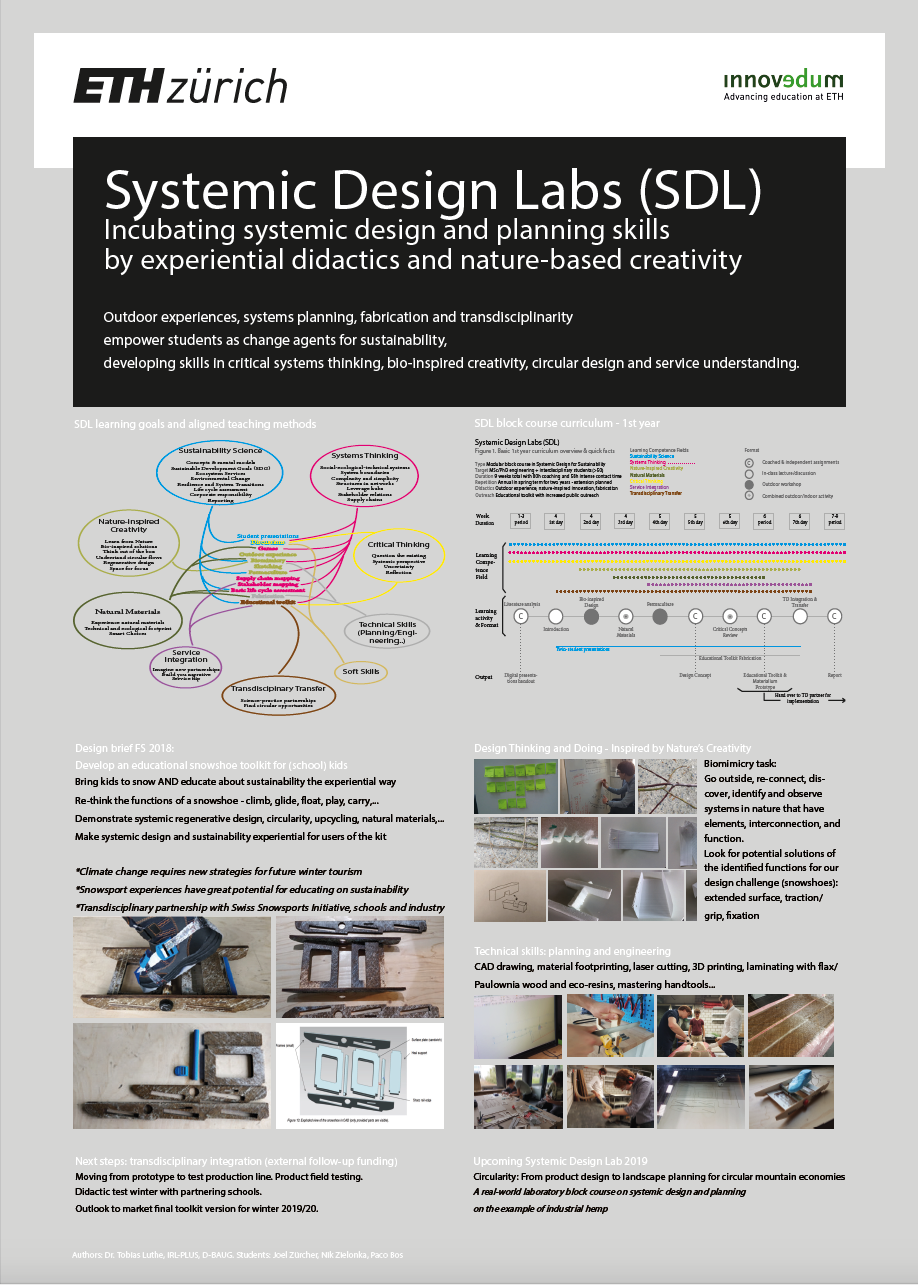Systemic Design Lab: Incubating systemic design skills by experiential didactics and nature-based creativity
Abstract
In this new, integrated modular block course for interdisciplinary MSc and PhD students, established technical planning and engineering methods are combined with ecological design thinking, nature-inspired creativity and service understanding to better cope with the increasing complexity of current and future sustainability challenges.
Students are being empowered to proactively design processes, products and servic-es from a systemic perspective, where ecological life cycle design is integrated with technical planning and engineering skillsets, in relation to socio-economic factors, user needs and spatial development. The Systemic Design Lab (SDL) initiative builds on established teaching in engineering, planning and design while introducing systemic design thinking and doing in an innovative format based on experiential didactics and outdoor creativity.
We use bio-inspired design or biomimicry, fabrication and prototyping with sustainable materials, and systems- or supply chain mapping of product/process/services to spur creativity, holistic thinking and critical reflection within a sustainability context. Students learn to inhabit the “view from above” – zooming out of the direct problem focus to see the underlaying structure and identify leverage hubs with systemic impact – and zooming in again with the needed focus on details that matter most.
Explicitly, students acquire life cycle analysis, supply chain mapping and circular design skills, to both quantify and minimize the undesirable negative environmental footprint while increasing the regenerative, net-positive contribution of their design solutions. Fabrication and material science are taught by actually designing and prototyping while engaging in transdisciplinary partnerships for societal impact and real-world experi-ence. Students gain a whole-systems understanding of the relation between products, processes, services, economies and lifestyles to up- and downstream flows of matter, energy and people mobility, within a spatial framing. In the SDL course displayed here, students prototyped an educational fabrication kit – for building snow shoes – as a tool for schools and the public to teach sustainability. The educational snow shoe toolkit is optimized for circularity and environmental impacts, while displaying timely engineering skills like 3D printing and laminating with upcycled and renewable materials like bio-plastics and flax-Paulownia composites. The technical design details are inspired by nature’s creativity and adhere to general systemic design principles. The public “Student Project House” at ETH Höngg provided the needed facilities for creative design thinking, fabrication, and nature access.
The prototyped toolkit now enters the transdisciplinary testing phase with schools be-fore possibly spinning-off for its upscaled market implementation. Future SDL courses will employ and further improve this systemic design approach while focusing on varying fabrication and planning themes.

